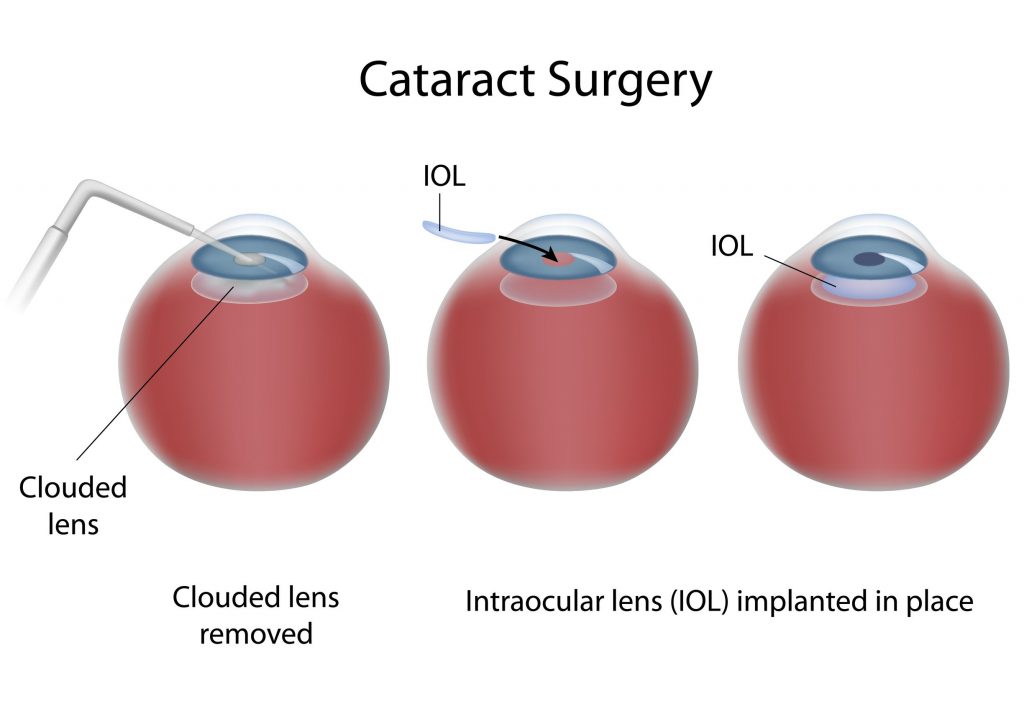
Cataract Surgery
Cataracts are the leading cause of blindness in the world, even though they are very treatable. They develop slowly, and many people manage the symptoms for years, but you do not have to wait until you suffer with significant impairment to have cataract surgery. The solution is permanent. Your cataracts will not grow back. If you have developed presbyopia, the need for reading glasses, that can be corrected with your cataract surgery, too.
What are Cataracts?
Cataracts are clouding of the lens of the eye. The lens is mainly water and protein, and the protein is arranged in a very precise way so the lens is clear. If the protein clumps together it causes a cloudy spot. This is a cataract. A small cataract is usually not noticeable. Over time, cataracts can grow until they impair vision.
Cataract Symptoms
Cataracts typically get worse slowly, as do the symptoms. Symptoms include:
- Colors become less intense or develop a brownish or yellow tint.
- You need more light than you used to, or lighting seems dimmer than it used to.
- Lighting that used to be comfortable is too bright for you
- It is difficult to adjust to bright light
- Foggy or hazy vision
- Increased glare
- Double vision, even with one eye closed
- Frequent blinking to clear your vision
- Increased glare
- Eye strain or eyes that get tired easily
- Frequent changes in your prescription for glasses or contacts
- Blurry vision
- Halos around lights
Causes of Cataracts
Most cataracts develop with age. Some people are born with them, and they can also be caused by severe trauma to the eye. Your likelihood of developing cataracts can be increased by any of the following:
- UV exposure, from the sun and other sources
- Prolonged use of certain medications including steroids and statins
- Diabetes with high blood sugar
- High blood pressure
- Obesity
- Hormone replacement therapy
- Nutritional deficiencies
Cataract Treatment
Age-related cataracts can start to form when you are in your 40’s or younger. If they are detected early, diet and lifestyle changes can slow their growth and delay the onset of debilitating symptoms.
Nutrition is the first line in fighting cataract growth, with an emphasis on the antioxidants vitamins C, vitamin E, lutein, and zeaxanthin. Protecting your eyes from the sun by wearing UVA/UVB protective eyewear is essential. If you have diabetes, keeping it under control helps to protect you from cataracts and other vision-robbing conditions.
When cataracts affect your vision and become a problem, cataract surgery can permanently correct the problem. Cataract surgery replaces the natural lens of your eye with an artificial intraocular lens. You do not need to wait until your quality of life is severely impaired to have cataract surgery.
To learn more about cataracts and cataract treatment, find an ophthalmologists near you.
